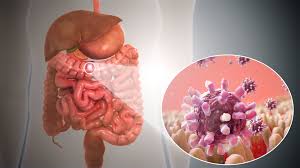Gastroenteritis:

A recent study on the impact of the indigenous rotavirus vaccine in India found marked reductions in rotavirus-based gastroenteritis in sites across the country.
- Gastroenteritis is an inflammation of the lining of the stomach and intestines.
- It is usually not serious in healthy people, but it can sometimes lead to dehydration or cause severe symptoms.
- There can be many different causes of gastroenteritis:
- Viruses
- Bacteria
- Parasites
- Chemicals
- Reactions to certain medicines and food
- Viral gastroenteritis is the most common type. It can be caused by many different viruses, including noroviruses and rotaviruses.
- When gastroenteritis is caused by consuming foods or drinks contaminated with viruses, bacteria, parasites, or chemicals, this is called food poisoning.
- The viruses, bacteria, and parasites that cause gastroenteritis can also spread from person to person.
- The symptoms of gastroenteritis include:
- Diarrhea
- Pain or cramping in your abdomen (belly)
- Nausea
- Vomiting
- Sometimes fever
- Usually, people with gastroenteritis get better on their own, with rest and plenty of fluids and electrolytes.
- Your provider may suggest that you take a probiotic.
- Studies suggest that some probiotics may help shorten a case of diarrhea.
- People with more severe symptoms may need medicines to control nausea or vomiting.
- Providers may also give other medicines for certain types of gastroenteritis, such as antibiotics for some bacterial types and antiparasitic medicines for some parasitic types.




